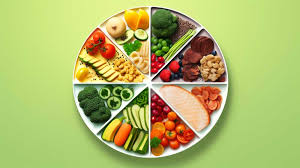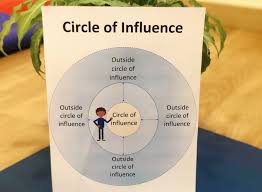In 2024, maintaining high energy levels throughout the day is more crucial than ever. With busy schedules and increasing demands, the right nutrition can be a game-changer for sustaining energy and improving overall well-being. This comprehensive guide outlines the best nutrition tips for boosting your energy levels, ensuring you stay vibrant and productive.
1. Focus on Balanced Meals

Overview: Eating balanced meals is fundamental to maintaining steady energy levels. A well-rounded diet includes a mix of macronutrients—carbohydrates, proteins, and fats—along with essential vitamins and minerals.
Tips:
- Include Complex Carbohydrates: Opt for complex carbohydrates such as whole grains, legumes, and vegetables. These provide a slow and steady release of energy, preventing energy crashes.
- Incorporate Lean Proteins: Choose lean proteins like chicken, fish, tofu, and beans. Protein helps build and repair tissues and keeps you feeling full longer.
- Add Healthy Fats: Incorporate sources of healthy fats such as avocados, nuts, seeds, and olive oil. Healthy fats support brain function and provide long-lasting energy.
Key Areas to Focus On:
- Meal Composition: Ensure each meal includes a balance of carbohydrates, proteins, and fats.
- Snacking Wisely: Choose nutritious snacks like fruit with nuts or yogurt with berries to maintain energy between meals.
2. Stay Hydrated
Overview: Hydration is crucial for energy levels. Even mild dehydration can lead to fatigue, headaches, and decreased cognitive function.
Tips:
- Drink Water Regularly: Aim to drink at least 8 glasses of water per day. Increase your intake if you’re physically active or live in a hot climate.
- Monitor Hydration Levels: Pay attention to signs of dehydration, such as dark urine or feeling thirsty. Adjust your water intake accordingly.
- Include Hydrating Foods: Eat water-rich foods like cucumbers, melons, and oranges to boost your hydration.
Key Areas to Focus On:
- Consistent Intake: Carry a water bottle and take sips throughout the day to stay hydrated.
- Limit Dehydrating Beverages: Reduce consumption of caffeinated and alcoholic beverages, which can dehydrate the body.
3. Prioritize Nutrient-Dense Foods
Overview: Nutrient-dense foods are rich in vitamins, minerals, and antioxidants, which support overall health and energy levels.
Tips:
- Choose Colorful Vegetables and Fruits: Aim for a variety of colorful vegetables and fruits to ensure you’re getting a wide range of nutrients.
- Incorporate Superfoods: Include superfoods like berries, spinach, quinoa, and chia seeds in your diet. These foods are packed with essential nutrients and antioxidants.
- Avoid Empty Calories: Limit foods high in added sugars and refined grains, as they provide little nutritional value and can lead to energy crashes.
Key Areas to Focus On:
- Variety in Diet: Diversify your food choices to maximize nutrient intake and prevent deficiencies.
- Whole Foods: Opt for whole, minimally processed foods over packaged and processed options.
4. Manage Blood Sugar Levels

Overview: Maintaining stable blood sugar levels is key to sustained energy. Fluctuations in blood sugar can lead to energy dips and cravings.
Tips:
- Eat Regularly: Consume meals and snacks at regular intervals to maintain stable blood sugar levels.
- Include Fiber: Incorporate high-fiber foods such as whole grains, fruits, and vegetables. Fiber helps regulate blood sugar levels and promotes satiety.
- Pair Carbs with Protein: Combine carbohydrates with protein to slow the absorption of sugar and prevent rapid spikes in blood sugar.
Key Areas to Focus On:
- Balanced Meals: Ensure each meal includes a mix of carbohydrates, protein, and healthy fats.
- Monitor Portion Sizes: Be mindful of portion sizes to avoid overeating and potential blood sugar spikes.
5. Optimize Meal Timing
Overview: When you eat can impact your energy levels. Timing your meals and snacks strategically can enhance energy and performance throughout the day.
Tips:
- Start the Day with a Nutrient-Rich Breakfast: Eating a balanced breakfast can boost metabolism and provide sustained energy. Include protein, fiber, and healthy fats.
- Avoid Late-Night Eating: Try to finish your last meal at least 2-3 hours before bedtime to improve sleep quality and digestion.
- Pre- and Post-Workout Nutrition: Fuel up with a balanced snack or meal before exercise to boost performance and recover with protein and carbohydrates afterward.
Key Areas to Focus On:
- Meal Frequency: Maintain a regular eating schedule to keep energy levels steady.
- Pre-Workout Snacks: Choose easily digestible snacks that provide quick energy, such as a banana or a small handful of nuts.
6. Consider Supplements Wisely
Overview: While a balanced diet should provide most of your nutritional needs, supplements can be beneficial for filling gaps and supporting energy levels.
Tips:
- Consult a Healthcare Professional: Before starting any supplements, consult with a healthcare provider to determine what’s appropriate for your needs.
- Focus on Key Nutrients: Common supplements that may support energy include vitamin D, B vitamins, magnesium, and omega-3 fatty acids.
- Choose Quality Products: Opt for high-quality supplements from reputable brands to ensure efficacy and safety.
Key Areas to Focus On:
- Personalized Supplementation: Base your supplement choices on individual needs and dietary gaps.
- Monitor Effectiveness: Keep track of any changes in energy levels and adjust supplements as needed.
7. Avoid Energy Drainers

Overview: Certain lifestyle habits and food choices can deplete energy levels. Identifying and addressing these energy drainers can help maintain vitality.
Tips:
- Limit Sugar Intake: Reduce consumption of sugary foods and drinks, as they can cause energy crashes and affect overall health.
- Reduce Stress: High stress levels can impact energy. Practice stress management techniques such as mindfulness, meditation, or relaxation exercises.
- Get Regular Physical Activity: Incorporate regular physical activity into your routine to boost energy levels and overall health.
Key Areas to Focus On:
- Healthy Alternatives: Replace sugary snacks with nutrient-dense alternatives like nuts, seeds, and fresh fruit.
- Stress Reduction Techniques: Find effective methods for managing stress and incorporate them into your daily routine.
Conclusion
In 2024, optimizing your nutrition for increased energy involves a holistic approach that includes balanced meals, proper hydration, nutrient-dense foods, blood sugar management, strategic meal timing, wise use of supplements, and avoiding energy drainers. By implementing these nutrition tips, you can enhance your energy levels, improve overall well-being, and maintain productivity throughout the day. Remember, consistency is key, and making gradual, sustainable changes to your eating habits can lead to lasting benefits and a more energetic lifestyle.

